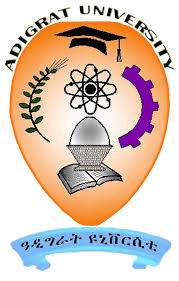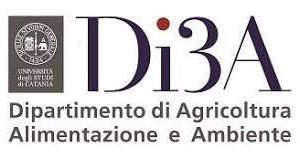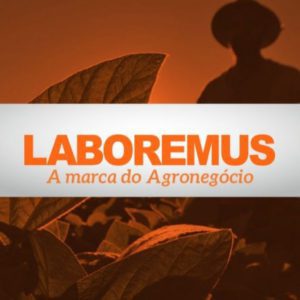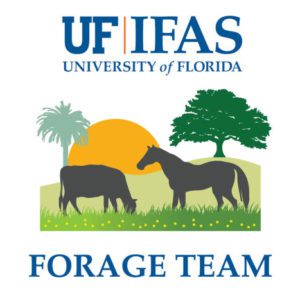
drygrow Foundation
We grow cactus
The dryGrow Foundation is revolutionizing agriculture in arid regions by harnessing the power of the Opuntia cactus for sustainable fodder production. Driven by our mission to cultivate resilient communities, we recognize the exceptional qualities of this traditional food and water source for both animals and people. Embracing the hardy and abundant nature of the cactus, we aim to promote its low-cost and easy-to-grow benefits, paving the way for a sustainable and thriving future in the world’s driest regions.
drygrow foundation
About Our Foundation
Who We Are
dryGrow Foundation is a non profit organisation with an aim to transform current agricultural practices in the semi-arid regions as we know it today.
Our mission is to utilize adaptive plants and cutting-edge methods to improve the livelihoods of people and facilitate resilient communities in semi-arid regions.
We envision the semi-arid areas with a vibrant agroecology, where plants, animals and human beings live in harmony. With our diverse backgrounds, we are able to think outside the box of conventional agriculture for a sustainable future.
What We Do
Through engaging in research with universities, and cooperating with other organisations and interested individuals our intention is to:
Organize and finance research and develop techniques to optimise Opuntia and Nopales cactus harvesting. Use reliable techniques and cactus varieties for best results.
Engage with communities in arid regions to help facilitate harvesting for animal fodder.
Transfer knowledge and management know-how.
we micropropagate
We're here for You!
What is micro-propagation Micro-propagation is the technique which allows the propagation of plants vegetatively starting from small ex-plants that can be represented by individual cells or groups of cells or tissue fractions of organs of plants that are to be multiplied. Micro-propagation allows to obtain quickly a large number of identical plants between them selves , and to the mother plant, this presents itself as an alternative to the conventional propagation and in the current nursery fruit this is a widely tested technique. time; Health and uniformity of the obtained materials; The produced multiplicated material can be preserved for a relatively long period.
FROM THE BLOG
Only Best Stories

X International Congress on Cactus Pear and Cochineal: 70. Control of pest cactus and cactus pests in Africa and reproduction performance of Dactylopius opuntiae
Abstract:The false carmine cochineal, Dactylopius opuntiae (Cockerell) (Hemiptera: Dactylopiidae), is the most devastating pest of cactus pear around the world. Recently this cochineal has become an increasing threat to

X International Congress on Cactus Pear and Cochineal: 71. Control of pest cactus and cactus pests in Africa
Abstract:The cactus, Opuntia ficus-indica Mill. has become an increasingly important crop in some arid parts of Africa, particularly the Mediterranean region of North Africa. The cochineal insect Dactylopius opuntiae (Cockrell) has

X International Congress on Cactus Pear and Cochineal: 72. Effect of tree tobacco leaf extracts on mortality rate of carmine cochineal
Abstract:The cactus pear (Opuntia ficus-indica L. Mill.) is a very important plant to northern Ethiopia used as food for the community and feed for their livestock, as fence

X International Congress on Cactus Pear and Cochineal: 73. Dactylopius coccus Costa pest of beles, and ways for sustainable pest management and development in Tigray, Ethiopia
Abstract:Cactus pear which is locally named beles, has a significant advantage in economic, social and environmental aspects in Tigray. In some parts, it becomes a substitute for the

X International Congress on Cactus Pear and Cochineal: 74. For an agroecological management of Dactylopius opuntiae (Hemiptera: Dactylopiidae)
Abstract:The wild cochineal (Dactylopius opuntiae, Hemiptera: Dactylopiidae) is the main pest of prickly pear plantations. Although there are different strategies for its control, the use of insecticides is

X International Congress on Cactus Pear and Cochineal: 75. Cactus – the New Green Revolution in Drylands: Functional response of the lady beetle, Hyperaspis trifurcata preying upon Dactylopius opuntiae (Hemiptera: Dactylopiidae)
Abstract:Opuntia ficus-indica (L.) Miller is found at different locations around the world, and it is frequently infested by the false carmine cochineal, Dactylopius opuntiae (Cockerell) (Hemiptera: Dactylopiidae). Hyperaspis trifurcata Schaeffer is a

Combining Leucaena Hay and Cactus Pear for Crossbred Steers’ Diets
Levels of Leucaena Hay and Cactus Pear in Diets for Crossbred Steers As livestock producers, we always look for innovative and cost-effective ways to feed our cattle.

How to make Nopal Flour
Harvest the cladodes: Collect young, tender cladodes from the Opuntia cactus. Wear gloves to protect your hands from the spines. Remove spines and glochids: Use a knife
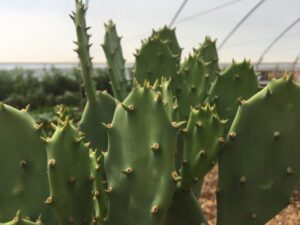
The carbon-capturing potential of Opuntia species.
Several factors can influence the carbon-capturing potential of Opuntia species. These factors play a significant role in determining the efficiency and effectiveness of Opuntia in sequestering carbon
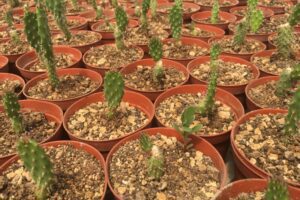
Carbon Capturing Mechanisms in Opuntia
Opuntia, a prickly pear cactus, employs a unique photosynthetic pathway called Crassulacean Acid Metabolism (CAM) to capture and store carbon dioxide (CO₂). The CAM pathway allows Opuntia

Cactus Feeding & Rotational Grazing: A Sustainable Trend in Ranching
Rotational Grazing – Cactus Feeding: A Growing Trend Let’s discuss a growing trend in cattle feeding: cactus feeding and rotational grazing. This sustainable and affordable method is
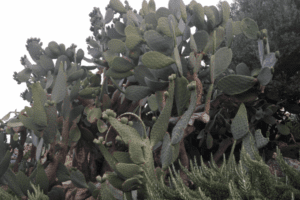
Prickly Pear the drought-resistant crop
Researchers are developing plant varieties that can withstand long periods of drought. Enabling farmers in arid regions to grow crops with minimal water resources. One prime example
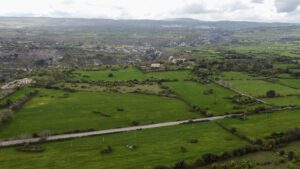
Were we are – Monti Iblei Syracuse
If you are in the Monti Iblei area of the province of Syracuse, there are several sights and attractions worth visiting. The Monti Iblei are a mountain

Opuntia Cactus: The Solution to Camel Herders’ Nutrition Challenge
Camel Herders’ Challenge: Finding Food Camel herders in Kenya face a big problem: providing enough nutrition for their animals. The dry climate and lack of plants make
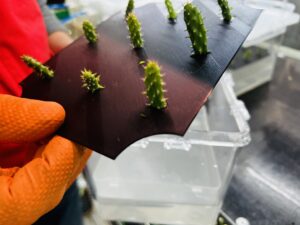
What is Micropropagation
In the past few decades of Micropropagation, plant tissue culture has dramatically impacted agriculture. In this method of plant propagation, an individual cell is taken from an
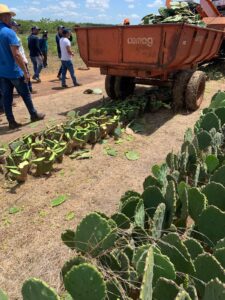
Exporting endemic Opuntia from Mexico
Introduction: Opuntia varieties, commonly known as prickly pear cacti, are an important part of Mexico’s agricultural industry. These endemic varieties are highly valued for their medicinal and
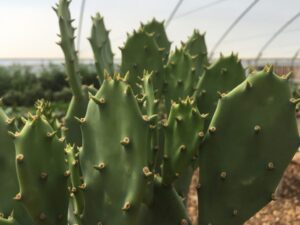
Professor Paolo Inglese University of Palermo
Paolo Inglese is a full professor (AGR/03) in the Scienze Agrarie, Alimentari e Forestali department at the University of Palermo.[1][4] He is also the rector delegate for

Unlocking the Potential of Opuntia Ficus Indica: Prof. Stefano La Malfa
PROF. STEFANO LA MALFA: A PASSION FOR PLANT SCIENCE Prof. Stefano La Malfa is a distinguished professor in the Department of Agriculture, Food, and Environment at the

San Cono’s Secret
The secret of San Cono lies in its fertile soil, which is ideal for growing crops like prickly pear and citrus fruits. A place steeped in history
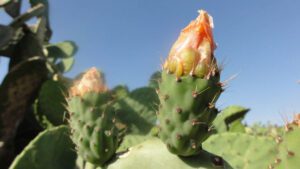
The magic of the Fico d’India
Once upon a time, in a small coastal village in Sicily, there was a mysterious plant known as the “Fico d’India,” or prickly pear cactus. The villagers

Prof. Jose Dubeux a Pioneer in Promoting Sustainable Use of Cacti
Prof. Jose Dubeux – Delving into the groundbreaking research and contributions of the renowned expert in forage production and sustainable agriculture Introduction: In the realm of sustainable
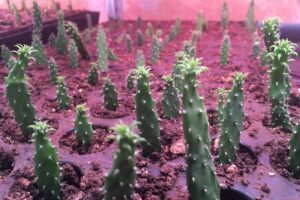
USE of LED Lights for growing Cactus
According to a guide by the New England Carnivorous Plant Society, LED lights are the most common type of light used in succulents due to their energy-efficient

A Beacon of Hope for Adigrat University and Sustainable Agriculture
A Beacon of Hope for Adigrat University and Sustainable Agriculture In the heart of Ethiopia, Adigrat University stands as an institution dedicated to empowering the nation’s next

Who is Djalma Cordeiro Dos Santos?
Djalma Cordeiro dos Santos is an agricultural engineer with a master’s degree in Plant Breeding from the Universidade Federal Rural de Pernambuco. He is currently a researcher

About Orelha de Elefante Clones
ABOUT ORELHA DE ELEFANTE CLONES Clones of the Orelja de Elefante Mexicana nopal cultivar were evaluated to find the ones with the best agronomic and zootechnical characteristics

University research
dryGrow ask’s – Are You part of a university or research institution… dryGrow passionate about sustainable agriculture and combating the challenges faced by communities in dry regions?

Get involved
Get involved by creating a sustainable future – In the face of growing challenges in arid regions, the dryGrow Foundation is dedicated to providing adaptive plants and

Biomass – Opuntia – What we do and offer
Opuntia and Related Genera Cultivation for Biomass Production Our Mission Our primary goal is to promote the cultivation of Opuntia and related genera for biomass production. We

dryGrow`s 1st Photo & Video contest (closed)
Photo and Video Contest Rules Terms: dryGrow Foundation’s 1st Photo/Video contest begins July 10, 2021, and ends December 31, 2021, at 5:00 PM CET. By submitting an entry, each contestant agrees
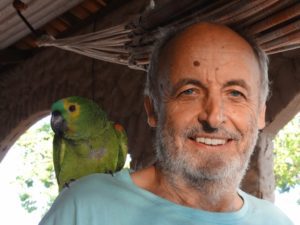
What was the trigger that prompted Walter Schroth to create dryGrow Foundation
Walter Schroth created dryGrow The beginning of dryGrow. Years ago, he met Carlos Tua Guava from Embrapa in Brazil. He has been researching his whole life for
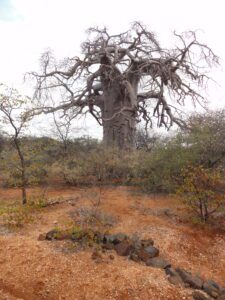
Geographical Areas-Resources
Geographical Areas-Resources Opuntia ficus-indica are native to many environments, ranging from desert areas below sea level to high- altitude areas such as the Peruvian Andes and from

Donations
Donations: dryGrow is committed to helping communities, increase food security and alleviate poverty. Your gift enable us to increase our capability to serve those in need across
LET'S DO it!
Get in Touch!
GENERALS
- info@drygrow.org
- Tel. +39 333 188 3425
- www.drygrow.org
HEADQUARTER sicily
96010 Palazzolo Acreide SR
Casale Bibbinello
Italy
Liechtenstein OFFICE
Meierhofstrasse 5
9490 Vaduz
Liechtenstein
